- Home
- Неизвестный
I Never Thought I'd See You Again: A Novelists Inc. Anthology
I Never Thought I'd See You Again: A Novelists Inc. Anthology Read online
I Never Thought I’d See You Again
Table of Contents
Title
Introduction by Lou Aronica
36 Hours by Allison Brennan
Facing the Mirror by Dianne Despain
Solomon’s Paradox by Kelly McClymer
Play it Again, Sam by Deb Stover
Christmas Eve at Alison’s Diner by Janet Tronstad
Persephone’s Granddaughter by Alyssa Day
The Greek, the Dog, Shangri-La and Me by Janet Woods
A Streetcar Named Death by Greg Herren
The Tower by Mary Hart Perry
Fabian’s Wake by Laura Resnick
Katy’s Place by Barbara Meyers
Backdraft by Kathryn Shay
Because of You by JoAnn A. Grote
Skipper and I by Ann La Farge
The Only Girl in the World by C.B. Pratt
Tide Change by Shirley Parenteau
Title
These stories are works of fiction. Names, characters, places, and incidents either are the product of the author’s imagination or are used fictitiously. Any resemblance to actual events, locales, organizations, or persons living or dead, is entirely coincidental and beyond the intent of either the author or the publisher.
The Story Plant
Studio Digital CT, LLC
PO Box 4331
Stamford, CT 06907
Copyright © 2013 by Novelists Inc.
Jacket design by Barbara Aronica-Buck
“36 Hours” copyright © 2013 by Allison Brennan
“Facing the Mirror” copyright © 2013 by Dianne Despain
“Solomon’s Paradox” copyright © 2013 by Kelly McClymer
“Play it Again, Sam” copyright © 2013 by Deb Stover
“Christmas Eve at Alison’s Diner” copyright © 2013 by Janet Tronstad
“Persephone’s Granddaughter” copyright © 2013 by Alyssa Day
“The Greek, the Dog, Shangri-La and Me” copyright © 2013 by Janet Woods
“A Streetcar Named Death” copyright © 2013 by Greg Herren
“The Tower” copyright © 2013 by Mary Hart Perry
“Fabian’s Wake” copyright © 2013 By Laura Resnick
“Katy’s Place” copyright © 2013 by Barbara Meyers
“Backdraft” copyright © 2013 By Kathryn Shay
“Because of You” copyright © 2013 by JoAnn A. Grote
“Skipper and I” copyright © 2013 by Ann La Farge
“The Only Girl in the World” copyright © 2013 by C. B. Pratt
“Tide Change” copyright © 2013 by Shirley Parenteau
Print ISBN-13: 978-1-61188-079-3
E-book ISBN-13: 978-1-61188-080-9
Visit our website at www.thestoryplant.com
Visit the Novelists Inc. website at www.ninc.com
All rights reserved, which includes the right to reproduce this book or portions thereof in any form whatsoever except as provided by US Copyright Law. For information, address Studio Digital CT.
First Story Plant Paperback Printing: July 2013
Introduction by Lou Aronica
When we began to think about creating a follow-up to our first anthology, Cast of Characters, those of us on the Novelists Inc. board at the time considered a number of options. Should we choose a particular genre? That didn’t feel right, because, while all of our members are novelists, what they write is so diverse. Should we choose a particular setting? That might work, but it would mean excluding writers uncomfortable with that setting, and it didn’t seem appropriate that anyone be disqualified for such an arbitrary reason.
Ultimately, we decided to go back to third grade. We’d offer a writing prompt. The sort of thing an elementary school teacher might assign to get kids to express themselves: if I were a farm animal … or the thing I love most about school is …. Since we were dealing with seasoned, highly successful writers, we assumed we could go with a more sophisticated prompt and that we could expect considerably more sophisticated results.
I gave this quite a bit of thought, but one morning the phrase, “I never thought I’d see you again” came to me. I resonated with it immediately. A few days later, I was sitting with the other Ninc board members at our annual conference and I tried it out on them. Their response confirmed that I’d hit on something. One board member said the phrase immediately made her think of a love story. Another heard a note of threat in the phrase and imagined a story of suspense. A third saw possibilities in the magical.
This was exactly what we wanted, a prompt that would be open to wildly different interpretations that would also connect the stories with a core emotion. I never thought I’d see you again. I’d like to believe that an image or scene flashed in your own head as you read that line.
I hope you find these offerings fascinating. These are very fine storytellers working at the tops of their games. If you’d like to learn more about our organization (or even join if you’re a novelist with at least two full-length publications to your credit), you can find us at www.ninc.com.
Lou Aronica
June, 2013
36 Hours by Allison Brennan
Allison Brennan is the New York Times and USA Today bestselling author of twenty thrillers and numerous short stories. A five-time RITA award nominee for Best Romantic Suspense, she also won the Daphne du Maurier Award for Best Suspense for Fear No Evil. RT Book Reviews has called her books “pulse-pounding” and “wonderfully complex” and said that Allison is, “A master of suspense — tops in the genre.” Lisa Gardner said, “Brennan knows how to deliver.” Allison lives in Northern California with her husband Dan and their five children. Visit her website at www.allisonbrennan.com for more information about her books.
When I was given the prompt, “I never thought I’d see you again,” Angel Saldana came to me fully-formed. She was feisty, strong-willed, and street smart but I had no idea what her story was. Was this a romance, where she never thought she’d never see her boyfriend again and he pops in to help her? No, it didn’t feel right. Angel is only fifteen. What about her alcoholic mother? Where was she and how did Angel end up in juvenile hall? No, not that either. Her best friend is missing, was Marisa going to return? Nope. Then something just clicked. I thought of all the kids who never knew their fathers while growing up, including me. Each one has a different story. Angel’s dad walks into her life to help her — when she didn’t even know he’d been keeping tabs on her in the first place. “I never thought I’d see you again” goes both ways for father and daughter as they meet for the first time in ten years — while running from people who want Angel dead.
Chapter One
Angel Saldana knew she was in danger the minute the assistant warden told her two detectives had arrived to escort her to a group home.
She was sitting in the waiting room, reading a paperback thriller she’d stolen from the back of the squad car that had brought her to juvie this morning. It’d been on the floor, no place for a book, and she didn’t figure the cop would notice. The book was about some guy named Reacher who was just walking down the highway, minding his own business, when he got arrested for a crime he didn’t commit. The cops didn’t know anything until the Reacher guy set them straight, and they still sent him to prison for the weekend. He’d practically solved their entire case, and they just ran around like idiots. Angel could so relate. Here she was sitting in juvie against her will all because she was trying to do the right thing.
“Angel, the officers are here to take you to the home,” the assistant warden, Lambert, said.
Not her home, but the home. A
group home. She’d been stuck in one before; they were almost worse than juvie.
“The district attorney’s office feels you’ll be safer elsewhere.”
Safer? Hardly. But at least outside the building she’d have a chance of survival.
But if she ran, her deal was off. Wasn’t that what they called a Catch-22? Dead if she runs, dead if she doesn’t.
Angel had agreed to testify against Raul Garcia, the head of the G-5 gang, because she didn’t really have a choice — wrong place, wrong time, all trying to help a friend stay out of trouble. The minute Angel found out that Marisa was dating Raul’s brother George, she’d warned her to stay far away. But Marisa hadn’t listened to Angel when they were five, why’d Angel think she’d listen to her now that they were fifteen?
Angel was more worried that something had happened to Marisa. She hoped she was just in hiding, that she’d simply chickened out of testifying against the Garcias. But Angel hadn’t seen or heard from her in three days.
Assistant District Attorney Kristina Larson assured Angel that she wasn’t in any trouble, as long as she told the truth Monday morning. Telling the truth wasn’t going to be the problem. Staying alive for the next thirty-six hours? The jury was out on that one. Angel had asked Larson about Marisa; she said the cops were still looking for her.
That didn’t make Angel feel any better.
Lambert continued. “I hope you can stay out of trouble this time, Angel. You’re a smart kid. Too smart for this shit you get yourself into.”
Trouble was relative. Lambert only knew Angel by her record and the two stints she’d already done in juvie. Being picked up for vandalism for keying the Bastard’s car after he’d pinched her on the ass for the hundredth time. (His name was Mr. Bernardo, but Angel preferred the Bastard. Call a spade a spade, right?) For truancy when she didn’t go to school, protesting that the Bastard was still teaching even after Angel reported his grabby hands to the assistant principal. And then the time she got arrested for joyriding past curfew without a license. (Where’s the joy in picking up her drunk mother from a bar?)
The trouble Angel was most concerned about was the kind that hurt. Or, considering that the Garcia family was involved, the kind of trouble that killed.
“You’re not under arrest,” Lambert said. “This is for your protection.”
“I know.” She almost wanted to take her chances here in juvie.
Don’t be a dumbass — there’s no way out of here.
What she really wanted was to go home, but no way they’d let her do that when her mom was in rehab (again) and everyone who was anyone (anyone bad) seemed to know she was going to testify against Raul Garcia. Angel had asked Kristina the lawyer if she could go home with her for the weekend, and the ADA seemed so flustered and surprised that Angel had backed down. Angel realized the woman was nice because she needed something; when all was said and done, Kristina Larson was a ladder-climbing lawyer, and she was still Angel Saldana, a half-Hispanic, half-whatever, juvenile delinquent who just happened to get good grades and ace standardized tests.
Some genius you are, Angel. You certainly know how to pick your friends.
Lambert handed Angel her backpack that had been confiscated when she’d arrived this morning. She stuffed the stolen paperback into the front pocket. An older plainclothes detective stood in the doorway. He looked her up and down, surprised. “This is Saldana?” He frowned at a folder in his hand.
“Yes,” Lambert said.
“It’s the hair,” Angel said with a fake smile. “I got bored with brown.”
She’d bleached the underside of her hair, then dyed it fire engine red. Added a couple blonde highlights on top and became a different person. At the time it seemed like a good idea, but unfortunately, the radical color made her stand out. First chance she got, she’d do something less dramatic to blend into a crowd.
The cop raised an eyebrow but didn’t say anything. Maybe it wasn’t just the hair. The nose stud might have done it. Or the two Chinese characters tattooed on the back of her neck that meant strength. She certainly wasn’t out to impress this cop or anyone else.
Lambert signed the paperwork and the cop escorted Angel out of the building. It was already dark, not surprising because it was January. She’d bolted from her apartment so fast after Marisa disappeared and the creeps showed up that she hadn’t grabbed a jacket. Everyone thought L.A. was all sun, all the time, but January and February got damn cold when the sun went down. There might even be rain this weekend. Terrific. At least the weather suited her mood.
The cop said, “I’m Detective Jim Friday.” He nodded to the other plainclothes cop leaning against the hood of the sedan. “That’s Detective Martinez.”
“Hola.” She gave Martinez a partial salute. “Can I convince you guys to swing by In and Out? I’m starving.” Juvie food was a step up from garbage, but she’d been so nervous that she hadn’t eaten.
“Sorry,” Friday said.
“Jim Friday.” Angel smirked. They didn’t have cable in her apartment and she’d spent one summer watching reruns of sixties television shows. Anything was better than the soap operas her mother devoured like the wine she drank. Mister Ed, Bonanza, Adam-12. Dragnet made her laugh, though she didn’t think it was supposed to be funny. “Anyone call you Joe?”
Martinez laughed spontaneously and Friday scowled. She grinned as she climbed into the backseat. The two cops sat up front.
“Don’t start,” Friday muttered to Martinez as his partner turned the ignition.
As soon as the car left the juvie compound, Angel breathed easier. She wasn’t out of the woods yet, but she was no longer locked up. Angel knew the San Fernando Valley inside and out and was confident she could find someplace to hide if the group home situation was messed up.
“Where are we going?”
“Reseda,” Friday said.
“My apartment is in Reseda — think we could swing by and get some of my stuff?”
“No.” Martinez glanced at her in the rearview mirror. “Don’t you think it’s unusual that you have a police escort? We don’t usually go about transporting juvenile delinquents from lockup. It’s either corrections or social services.”
“I’m not a delinquent.”
Martinez snorted. “I saw your file.”
She stuck her tongue out at him in the mirror and leaned back.
Friday said, “The DA’s office is taking all precautions, considering.”
“Considering I have a target on my back.”
“If there was a real threat, they’d put you in a safe house. This is simply a precaution.”
“Whatev.” Of course there was a real threat. Angel had always steered clear of the gang and drug scene, though it wasn’t easy. Between her apartment and school, by the time she was running through multiplication tables Angel knew every street name for meth, coke, pot, heroin, and anything else grown, cooked, or manufactured to get someone high. When Marisa started dating Raul’s brother George, she’d brought the drug gangs to their doorstep. Angel should have told her to take a hike, but loyalty — best friends forever — won. Marisa and her parents were the only stable people in Angel’s life. They’d lived in the same apartment building for as long as she could remember. Marisa’s parents taught her Spanish and fed her when her mom didn’t buy food — which was often.
“Why’d you do it, Marisa?” Angel mumbled.
“What?” Friday said from the passenger seat.
“Nothing.”
Because it was Saturday evening and traffic was moving, it didn’t take long to cross the Valley. The group home off Vanowen looked like every other ranch house built in the fifties. The front was mostly concrete with a small square of lawn, a three-foot high chain link fence that might keep a Chihuahua caged and not much else. A white van in the driveway had Los Angeles County Group Facilities Management painted on the side.
I so do not want to be here.
“These people know I’m not in trouble, right?
”
“They know you’re a material witness and we’ll be picking you up at seven thirty Monday morning to escort you to the courthouse.”
“My own chauffeur service,” Angel said.
Martinez turned off the car and stared at her. “Your mouth gets you in trouble, doesn’t it chica?”
She shrugged.
“Don’t cause problems,” he said.
She gave him her most angelic smile. “Who me?”
Friday got out, opened her door and said, “Watch your step.”
She got out and then hesitated. Just a moment.
Angel had survived fifteen and a half years because she had sharp instincts honed in the womb. Every synapse told her to duck. She didn’t know if it was the van, if she saw it move, or if it was a sound, but something was wrong and Angel trusted her gut.
As if Friday could read the expression on her face, or maybe she’d said his name, or perhaps his own cop instincts had kicked in just a moment too late, he turned, his hand on the butt of his gun.
The van’s side door slid open and Angel flattened her body on the ground as soon as she saw the glint of a weapon under the streetlights.
She rolled under the cop car the second before gunfire started. Semi-automatic weapons, the kind that weren’t legal and probably never had been, broke the silence with a roar. She slid to the other side of the car, the underbelly scratching her leg, the rough asphalt scraping her arms and stomach. When she was clear, she half crawled, half ran across the street.
She heard shouts and screams behind her, and one of them yelled in Spanish, “She’s across the street!”
Then she heard, “Bitch! Get back here, punta!”
Like she was going to stop for him or anyone else who was shooting at her.
The gunfire stopped and the van came to life, the headlights bright.
A burst of energy, her survival gene, had her sprinting. She should be a damn Olympic runner, she thought as the van squealed behind her.
She had to get off the street and into hiding. Her apartment wasn’t far, maybe a mile away, but they probably knew where she lived.

 The Bolivian Diary
The Bolivian Diary Caffeine Blues_ Wake Up to the Hidden Dangers of America's #1 Drug ( PDFDrive )
Caffeine Blues_ Wake Up to the Hidden Dangers of America's #1 Drug ( PDFDrive ) The Empty House
The Empty House T Thorn Coyle Evolutionary Witchcraft (pdf)
T Thorn Coyle Evolutionary Witchcraft (pdf)![K J Emrick & Kathryn De Winter - [Moonlight Bay Psychic Mystery 01-06] - A Friend in; on the Rocks; Feature Presentation; Manor of; by Chocolate Cake; A-Maze-Ing Death (retail) (epub) Read online](http://freenovelread.comhttps://picture.efrem.net/img/nienyi/k_j_emrick_and_kathryn_de_winter_-_moonlight_bay_psychic_of_by_chocolate_cake_a-maze-ing_death_retail_epub_preview.jpg) K J Emrick & Kathryn De Winter - [Moonlight Bay Psychic Mystery 01-06] - A Friend in; on the Rocks; Feature Presentation; Manor of; by Chocolate Cake; A-Maze-Ing Death (retail) (epub)
K J Emrick & Kathryn De Winter - [Moonlight Bay Psychic Mystery 01-06] - A Friend in; on the Rocks; Feature Presentation; Manor of; by Chocolate Cake; A-Maze-Ing Death (retail) (epub) Next Day of the Condor
Next Day of the Condor Onyx
Onyx The Woodcock Game: An Italian Mystery Novel
The Woodcock Game: An Italian Mystery Novel Granta 122: Betrayal (Granta: The Magazine of New Writing)
Granta 122: Betrayal (Granta: The Magazine of New Writing) One More Dream
One More Dream Cosa Nostra by Emma Nichols) 16656409 (z-lib.org) (1)-compressed
Cosa Nostra by Emma Nichols) 16656409 (z-lib.org) (1)-compressed Cowboy by J. M. Snyder
Cowboy by J. M. Snyder Colossus
Colossus Star Trek - DS9 011 - Devil In The Sky
Star Trek - DS9 011 - Devil In The Sky Fright Mare-Women Write Horror
Fright Mare-Women Write Horror The Future Is Japanese
The Future Is Japanese In the Witching Hour
In the Witching Hour Mammoth Books presents Wang's Carpets
Mammoth Books presents Wang's Carpets The Cradle King: The Life of James VI and I, the First Monarch of a United Great Britain
The Cradle King: The Life of James VI and I, the First Monarch of a United Great Britain Stalking Moon
Stalking Moon Hostage To The Devil
Hostage To The Devil![Harris, Daisy - Mere Passion [Ocean Shifters 2] (Siren Publishing Classic) Read online](http://i1.bookreadfree.com/i/03/23/harris_daisy_-_mere_passion_ocean_shifters_2_siren_publishing_classic_preview.jpg) Harris, Daisy - Mere Passion [Ocean Shifters 2] (Siren Publishing Classic)
Harris, Daisy - Mere Passion [Ocean Shifters 2] (Siren Publishing Classic) Day, Sunny - Hot in Space (Siren Publishing Ménage and More)
Day, Sunny - Hot in Space (Siren Publishing Ménage and More) Five Books Of The Lives, Heroic Deeds And Sayings Of Gargantua And His Son Pantagruel
Five Books Of The Lives, Heroic Deeds And Sayings Of Gargantua And His Son Pantagruel I Never Thought I'd See You Again: A Novelists Inc. Anthology
I Never Thought I'd See You Again: A Novelists Inc. Anthology Billion dollar baby bargain.txt
Billion dollar baby bargain.txt![Chenery, Marisa - Turquoise Eye of Horus [Egyptian Shifters 1] (Siren Publishing Classic) Read online](http://i1.bookreadfree.com/i1/03/26/chenery_marisa_-_turquoise_eye_of_horus_egyptian_shifters_1_siren_publishing_classic_preview.jpg) Chenery, Marisa - Turquoise Eye of Horus [Egyptian Shifters 1] (Siren Publishing Classic)
Chenery, Marisa - Turquoise Eye of Horus [Egyptian Shifters 1] (Siren Publishing Classic) Cat Magic
Cat Magic Star Trek - DS9 - Warped
Star Trek - DS9 - Warped Catherine Coulter - FBI 1 The Cove
Catherine Coulter - FBI 1 The Cove Miranda Lee -The Blackmailed Bridegroom
Miranda Lee -The Blackmailed Bridegroom The Seashell Anthology of Great Poetry
The Seashell Anthology of Great Poetry Dragon Moon
Dragon Moon The Social Costs of Pornography: A Collection of Papers
The Social Costs of Pornography: A Collection of Papers That Is Not Dead
That Is Not Dead Best New Horror: Volume 25 (Mammoth Book of Best New Horror)
Best New Horror: Volume 25 (Mammoth Book of Best New Horror) This Christmas by J. M. Snyder
This Christmas by J. M. Snyder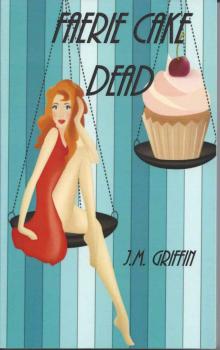 Faerie Cake Dead
Faerie Cake Dead CS-Dante's Twins
CS-Dante's Twins EFD1: Starship Goodwords (EFD Anthology Series from Carrick Publishing)
EFD1: Starship Goodwords (EFD Anthology Series from Carrick Publishing) Echo Burning by Lee Child
Echo Burning by Lee Child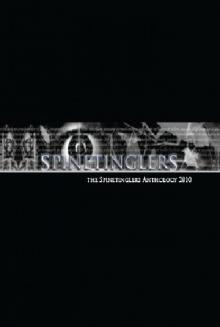 The Spinetinglers Anthology 2010
The Spinetinglers Anthology 2010 Wild Hearts
Wild Hearts Violet Winspear - Sinner ...
Violet Winspear - Sinner ... Broken Angels
Broken Angels FearNoEvil
FearNoEvil![Santiago, Lara - Range War Bride [Tasty Treats 11] (Siren Publishing PolyAmour) Read online](http://i1.bookreadfree.com/i1/03/30/santiago_lara_-_range_war_bride_tasty_treats_11_siren_publishing_polyamour_preview.jpg) Santiago, Lara - Range War Bride [Tasty Treats 11] (Siren Publishing PolyAmour)
Santiago, Lara - Range War Bride [Tasty Treats 11] (Siren Publishing PolyAmour) 8 Great Hebrew Short Novels
8 Great Hebrew Short Novels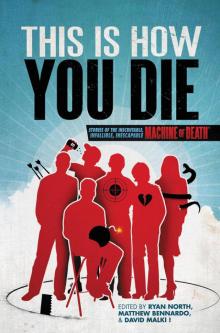 This Is How You Die: Stories of the Inscrutable, Infallible, Inescapable Machine of Death
This Is How You Die: Stories of the Inscrutable, Infallible, Inescapable Machine of Death The Steampowered Globe
The Steampowered Globe While We Wait by J. M. Snyder
While We Wait by J. M. Snyder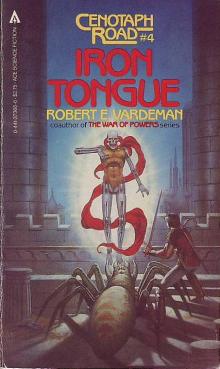 Iron Tongue cr-4
Iron Tongue cr-4![Stieg Larsson [Millennium 02] The Girl Who Played with Fire v5.0 (LIT) Read online](http://i1.bookreadfree.com/i1/03/31/stieg_larsson_millennium_02_the_girl_who_played_with_fire_v5_0_lit_preview.jpg) Stieg Larsson [Millennium 02] The Girl Who Played with Fire v5.0 (LIT)
Stieg Larsson [Millennium 02] The Girl Who Played with Fire v5.0 (LIT)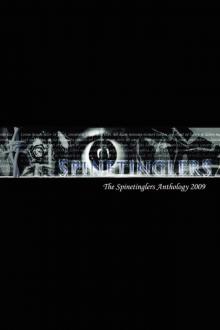 The Spinetinglers Anthology 2009
The Spinetinglers Anthology 2009 Bowles, Jan - Branded by the Texas Rancher (Siren Publishing Classic)
Bowles, Jan - Branded by the Texas Rancher (Siren Publishing Classic) Brown, Berengaria - Vivienne's Vacation (Siren Publishing Ménage and More)
Brown, Berengaria - Vivienne's Vacation (Siren Publishing Ménage and More) Inheritors
Inheritors Arthur Conan Doyle: A Life in Letters
Arthur Conan Doyle: A Life in Letters Cunningham, Pat - Coyote Moon (BookStrand Publishing Romance)
Cunningham, Pat - Coyote Moon (BookStrand Publishing Romance) Static Line
Static Line Ghost Mysteries & Sassy Witches (Cozy Mystery Multi-Novel Anthology)
Ghost Mysteries & Sassy Witches (Cozy Mystery Multi-Novel Anthology) Elizabeth Neff Walker - Puppy Love
Elizabeth Neff Walker - Puppy Love Ghosts in the Machine
Ghosts in the Machine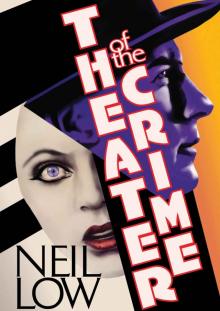 Theater of the Crime (Alan Stewart and Vera Deward Murder Mysteries Book 6)
Theater of the Crime (Alan Stewart and Vera Deward Murder Mysteries Book 6) Red Satin Lips, Book One (The Surrender Series)
Red Satin Lips, Book One (The Surrender Series) Catherine Coulter - FBI 4 The Edge
Catherine Coulter - FBI 4 The Edge StateoftheUnion
StateoftheUnion Fantastic Women: 18 Tales of the Surreal and the Sublime from Tin House
Fantastic Women: 18 Tales of the Surreal and the Sublime from Tin House Sara Wood-Expectant Mistress original
Sara Wood-Expectant Mistress original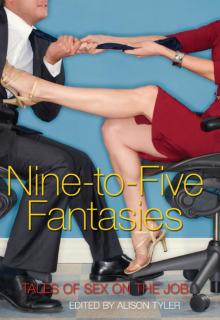 Nine-to-Five Fantasies: Tales of Sex on the Job
Nine-to-Five Fantasies: Tales of Sex on the Job Granta 133
Granta 133 Dream Quest
Dream Quest The Warlock in Spite of Himself wisoh-2
The Warlock in Spite of Himself wisoh-2 Glenn, Stormy - Mating Heat (Siren Publishing Ménage Amour)
Glenn, Stormy - Mating Heat (Siren Publishing Ménage Amour) Davis, Lexie - Toys from Santa (Siren Publishing Classic)
Davis, Lexie - Toys from Santa (Siren Publishing Classic) Once Dead, Twice Shy
Once Dead, Twice Shy McSweeney's Enchanted Chamber of Astonishing Stories
McSweeney's Enchanted Chamber of Astonishing Stories Zombies: Shambling Through the Ages
Zombies: Shambling Through the Ages Baghdad Without a Map
Baghdad Without a Map Banshee Cries (the walker papers)
Banshee Cries (the walker papers)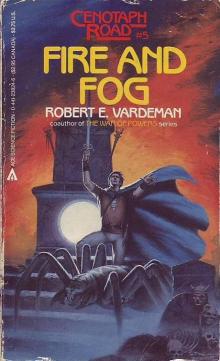 Fire and Fog cr-5
Fire and Fog cr-5 The Twelve Hot Days of Christmas
The Twelve Hot Days of Christmas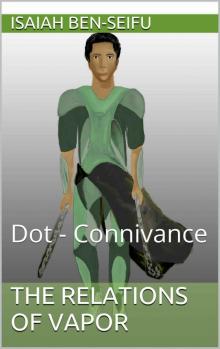 The Relations of Vapor: Dot - Connivance
The Relations of Vapor: Dot - Connivance![Harris, Daisy - Mere Temptation [Ocean Shifters 1] (Siren Publishing Classic) Read online](http://i1.bookreadfree.com/i2/04/11/harris_daisy_-_mere_temptation_ocean_shifters_1_siren_publishing_classic_preview.jpg) Harris, Daisy - Mere Temptation [Ocean Shifters 1] (Siren Publishing Classic)
Harris, Daisy - Mere Temptation [Ocean Shifters 1] (Siren Publishing Classic)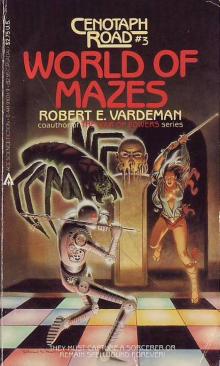 World of Mazes cr-3
World of Mazes cr-3 Mistaken Identity (A Jules Poiret Mystery Book 26)
Mistaken Identity (A Jules Poiret Mystery Book 26) Star Trek - DS9 - Fall of Terok Nor
Star Trek - DS9 - Fall of Terok Nor Not Like I'm Jealous or Anything: The Jealousy Book (Ruby Oliver)
Not Like I'm Jealous or Anything: The Jealousy Book (Ruby Oliver) Skaterboy by J. M. Snyder
Skaterboy by J. M. Snyder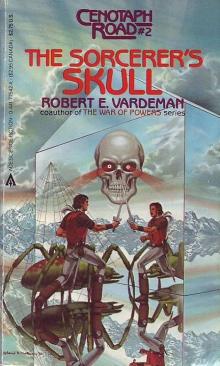 The Sorcerer_s Skull cr-2
The Sorcerer_s Skull cr-2 The Columbia Anthology of Modern Japanese Literature (Modern Asian Literature Series)
The Columbia Anthology of Modern Japanese Literature (Modern Asian Literature Series) New Erotica 5
New Erotica 5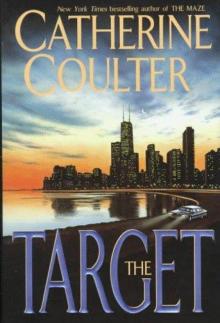 Catherine Coulter - FBI 3 The Target
Catherine Coulter - FBI 3 The Target Best Sex Writing 2013: The State of Today's Sexual Culture
Best Sex Writing 2013: The State of Today's Sexual Culture Factoring Humanity
Factoring Humanity Huia Short Stories 11
Huia Short Stories 11 Call of the Wilds
Call of the Wilds Great English Short Stories (Dover Thrift Editions)
Great English Short Stories (Dover Thrift Editions)![Ramagos, Tonya - Logan's Lessons [Sunset Cowboys 2] (Siren Publishing Classic) Read online](http://i1.bookreadfree.com/i2/04/10/ramagos_tonya_-_logans_lessons_sunset_cowboys_2_siren_publishing_classic_preview.jpg) Ramagos, Tonya - Logan's Lessons [Sunset Cowboys 2] (Siren Publishing Classic)
Ramagos, Tonya - Logan's Lessons [Sunset Cowboys 2] (Siren Publishing Classic)![Morgan, Nicole - Sweet Redemption [Sweet Awakenings 1] (Siren Publishing Allure) Read online](http://i1.bookreadfree.com/i2/04/10/morgan_nicole_-_sweet_redemption_sweet_awakenings_1_siren_publishing_allure_preview.jpg) Morgan, Nicole - Sweet Redemption [Sweet Awakenings 1] (Siren Publishing Allure)
Morgan, Nicole - Sweet Redemption [Sweet Awakenings 1] (Siren Publishing Allure)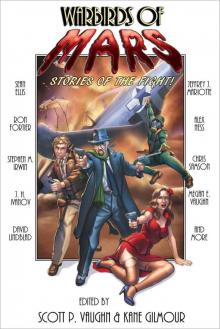 Warbirds of Mars: Stories of the Fight!
Warbirds of Mars: Stories of the Fight! Original Version of Edited Godwin Stories(lit)
Original Version of Edited Godwin Stories(lit) Where The Hell is Boulevard?
Where The Hell is Boulevard?![Chemical [se]X Read online](http://i1.bookreadfree.com/i2/04/13/chemical_sex_preview.jpg) Chemical [se]X
Chemical [se]X Allison Brennan - See No Evil
Allison Brennan - See No Evil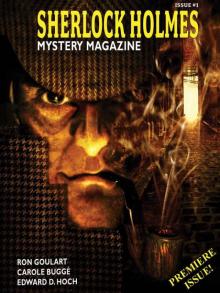 Sherlock Holmes Mystery Magazine #1
Sherlock Holmes Mystery Magazine #1